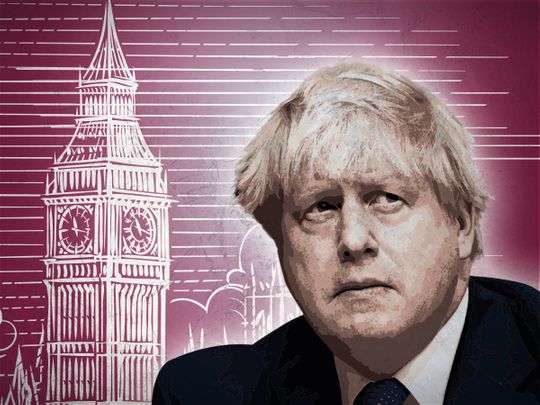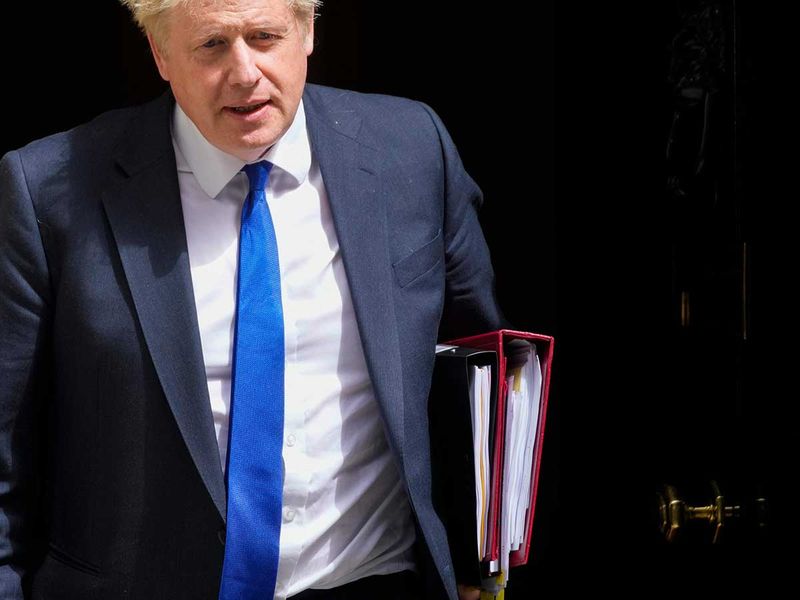
Boris Johnson. It’s a name that elicits either feelings of profound admiration or criticism. There is no middle ground. He is Marmite of the masses — you either love or loathe him.
Soon, the pastiche, the aura, the charm, the veneer of invincibility of the man who got Brexit done will be laid bare in the glare of television cameras in the setting of a Westminster parliamentary committee. He will be in front of seven MPs — and little room to bluster or obfuscate. In short, Johnson is fighting for his political life right now.
A preliminary report from those seven MPs — four Conservative party colleagues, three from the government-in-waiting ranks of Labour — provides strong evidence that suggests his version of events surrounding his gatherings and group sessions during 20 months of coronavirus lockdowns, broke the legal rules he and his ministers made and enforced on the wider British public.
But more than that too.
Little room to manoeuvre
The cross-party privileges committee interim report — it was released to give Johnson formal notice that it is the basis on which he will be questioned in hearings beginning on 20 March — said the House of Commons may have been misled at least four times over the partygate allegations. The questioning will be intense and, as the report details quite definitely, there is little room for Johnson to manoeuvre.
If the committee finds that Johnson was in contempt of parliament he could face sanctions, including a suspension. If the suspension is for longer than 10 days and the Commons agrees to it, his constituents in Uxbridge and South Ruislip in northwest London just north of Heathrow Airport, could find themselves voting in a by-election.
As a reminder, as 2021 drew to a close, a slew of stories, videos, photographs and messages appeared about rule-breaking gatherings in 10 Downing Street and around Whitehall during the pandemic.
As report after report dropped, question upon question was asked by MPs in the House Commons about who was involved, and many of them were directed at the prime minister.
Mr Johnson repeatedly denied any rules were broken in Downing Street.
But in April 2022, after an investigation by London Metropolitan Police and senior civil servant Sue Gray, the evidence was clear. And irrefutable.
A total of 126 fines were issued by police to people that included Johnson.
Rules were broken
Labour’s Sir Chris Bryant usually chairs the committee, but recused himself from this investigation as he had already made a number of public comments about the matter. Instead, senior Labour backbencher and the longest serving MP Harriet Harman will be in the chair.
Over the past year or so, the committee has been gathering and analysing written evidence after issuing a public call for it last summer.

It also requested evidence from Downing Street with a deadline of July last year, although it did not get that material until November. That delay itself is evidence of contempt, the report says.
Adding a new twist to this is the fact that only last week, Sir Keir Starmer, the Labour Party leader and a man widely recognised as the next Prime Minister in waiting, appointed Sue Gray to be his new Chief of Staff.
That appointment has Johnson’s supporters baying that her investigation that catalogued the wrongdoings of partygate is now tainted, and that the evidence for the police fines is contaminated by backdated political bias.
Feeling vindicated?
The attempt to undermine Gray’s report became so convoluted that some MPs who had previously backed Johnson are now publicly putting as much distance as possible into their words.
When the report was released, Boris said he felt vindicated.
“There’s absolutely nothing to show that any adviser of mine or civil servant warned me in advance that events might be against the rules, nothing to say that afterwards they thought it was against the rules, nothing to show that I myself believed or was worried that something was against the rules,” he said.
One of the potential instances of contempt mentioned in the report is Johnson making a similar claim in the House of Commons, based on advice meant only for a media statement and referencing a single event rather than multiple gatherings.
For the record, this interim report is far from being the complete thing — merely meant as a guide to Johnson on the issues on which he faces questioning.
It seems clear where the March 20 hearing is heading. But the UK parliamentary system is far more discerning and unambiguous in gleaning the truth. There will be no “alternative facts”.








